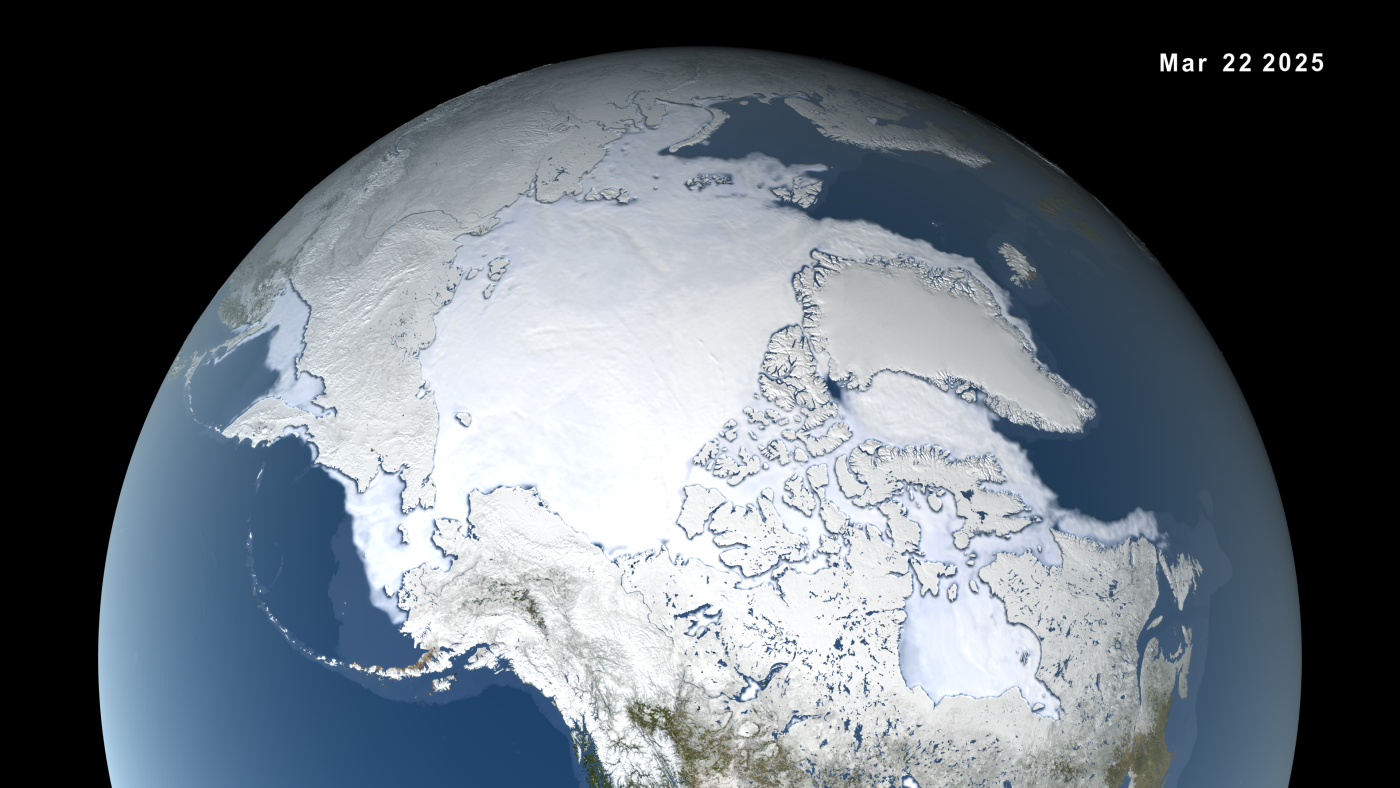Defense Department Ends Critical Satellite Weather Data Sharing: Impact Analysis

Welcome to your ultimate source for breaking news, trending updates, and in-depth stories from around the world. Whether it's politics, technology, entertainment, sports, or lifestyle, we bring you real-time updates that keep you informed and ahead of the curve.
Our team works tirelessly to ensure you never miss a moment. From the latest developments in global events to the most talked-about topics on social media, our news platform is designed to deliver accurate and timely information, all in one place.
Stay in the know and join thousands of readers who trust us for reliable, up-to-date content. Explore our expertly curated articles and dive deeper into the stories that matter to you. Visit Best Website now and be part of the conversation. Don't miss out on the headlines that shape our world!
Table of Contents
Defense Department Ends Critical Satellite Weather Data Sharing: Impact Analysis
The U.S. Department of Defense's recent decision to curtail the sharing of critical satellite weather data with civilian agencies and international partners is sending shockwaves through various sectors. This move, while shrouded in some secrecy, has significant implications for weather forecasting accuracy, disaster preparedness, and even national security. This article delves into the potential impact of this decision and explores the broader ramifications for a world increasingly reliant on accurate and timely weather information.
The Fallout: Reduced Accuracy and Response Times
For decades, the DoD has been a major contributor to global weather forecasting, providing invaluable data from its advanced meteorological satellites. This data, often unavailable from commercial sources, is crucial for creating high-resolution weather models, particularly in predicting severe weather events like hurricanes, tornadoes, and blizzards. The reduced data sharing will inevitably lead to:
- Less accurate weather forecasts: Civilian weather agencies, like the National Oceanic and Atmospheric Administration (NOAA), rely heavily on this military data to improve the accuracy and lead time of their forecasts. Reduced access translates directly into less precise predictions, potentially impacting public safety and economic activity.
- Slower disaster response: Accurate, timely weather forecasting is essential for effective disaster preparedness and response. Less precise forecasts mean slower evacuations, delayed emergency deployments, and increased vulnerability to extreme weather events. This could have devastating consequences for communities worldwide.
- Increased economic uncertainty: Many industries, including agriculture, aviation, and energy, depend on precise weather forecasting for efficient operations. Less accurate predictions will lead to greater economic uncertainty and potentially higher costs due to unforeseen weather disruptions.
National Security Implications: A Double-Edged Sword?
While the DoD's rationale for limiting data sharing remains partially unclear, it’s likely driven by concerns about national security. The argument is that restricting access prevents adversaries from leveraging this data for military advantage. However, this approach presents a paradoxical situation:
- Potential for decreased situational awareness: Ironically, limiting access to weather data could negatively impact U.S. national security. Accurate weather information is critical for military operations, and hindering global collaboration in this domain could limit the ability to anticipate and respond to threats.
- Erosion of international cooperation: The decision also undermines international cooperation on critical environmental issues. Sharing meteorological data has been a cornerstone of global collaboration for years. This move could damage trust and hinder future cooperative efforts in disaster relief and climate change mitigation.
Looking Ahead: The Need for Transparency and Alternative Solutions
The abrupt shift in data sharing practices necessitates a thorough reassessment of how we gather and utilize critical meteorological information. Increased transparency from the DoD regarding their decision-making process is crucial. Exploring alternative solutions, such as:
- Investment in civilian satellite technology: Increased investment in civilian-operated weather satellites could help mitigate the impact of reduced DoD data sharing.
- Enhanced data sharing agreements: Negotiating robust data-sharing agreements with trusted allies could help maintain a level of global cooperation in weather forecasting.
- Development of innovative data analysis techniques: Investing in advanced data analysis techniques that can make the most of available data, even with limitations, is crucial.
This situation highlights the critical interdependence between military and civilian sectors in addressing global challenges. The long-term effects of this decision remain to be seen, but the potential for negative consequences across various sectors is undeniable. Open communication, international collaboration, and strategic investment in alternative solutions are vital to mitigating the risks and ensuring the continued accuracy and accessibility of critical weather data for all.

Thank you for visiting our website, your trusted source for the latest updates and in-depth coverage on Defense Department Ends Critical Satellite Weather Data Sharing: Impact Analysis. We're committed to keeping you informed with timely and accurate information to meet your curiosity and needs.
If you have any questions, suggestions, or feedback, we'd love to hear from you. Your insights are valuable to us and help us improve to serve you better. Feel free to reach out through our contact page.
Don't forget to bookmark our website and check back regularly for the latest headlines and trending topics. See you next time, and thank you for being part of our growing community!
Featured Posts
-
 Amazon Stock Why It Could Outpace Market Performance
Jul 01, 2025
Amazon Stock Why It Could Outpace Market Performance
Jul 01, 2025 -
 Seven Time All Star Dave Parker Dead At Age Remembering A Baseball Icon
Jul 01, 2025
Seven Time All Star Dave Parker Dead At Age Remembering A Baseball Icon
Jul 01, 2025 -
 Maryland Virginia Commute Transformed Wmatas Direct Rail Line Opens June 29th
Jul 01, 2025
Maryland Virginia Commute Transformed Wmatas Direct Rail Line Opens June 29th
Jul 01, 2025 -
 Amazons Trajectory A 1 Year Forecast
Jul 01, 2025
Amazons Trajectory A 1 Year Forecast
Jul 01, 2025 -
 Espn Reports Death Of Baseball Great Dave Parker A Legacy Of Excellence
Jul 01, 2025
Espn Reports Death Of Baseball Great Dave Parker A Legacy Of Excellence
Jul 01, 2025
Latest Posts
-
 Financial Issues And Gambling Allegations Surround Nbas Michael Beasley
Jul 03, 2025
Financial Issues And Gambling Allegations Surround Nbas Michael Beasley
Jul 03, 2025 -
 Darren Waller Unretires Dolphins Acquire Tight End In Trade
Jul 03, 2025
Darren Waller Unretires Dolphins Acquire Tight End In Trade
Jul 03, 2025 -
 Darren Waller Unretires Traded To Miami Dolphins Nfl Trade Details
Jul 03, 2025
Darren Waller Unretires Traded To Miami Dolphins Nfl Trade Details
Jul 03, 2025 -
 Damian Lillard Waived Myles Turner Signed Full Bucks Free Agency Update
Jul 03, 2025
Damian Lillard Waived Myles Turner Signed Full Bucks Free Agency Update
Jul 03, 2025 -
 Commissioners Cup Final Fever Star Clark Sidelined
Jul 03, 2025
Commissioners Cup Final Fever Star Clark Sidelined
Jul 03, 2025
